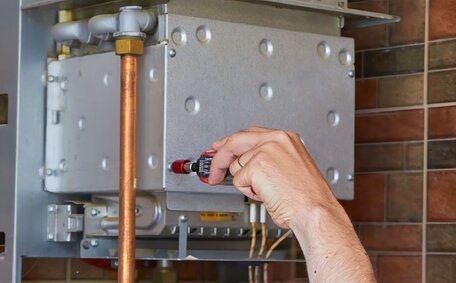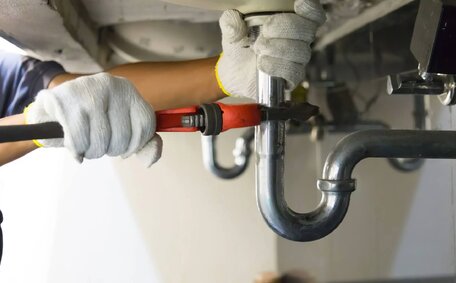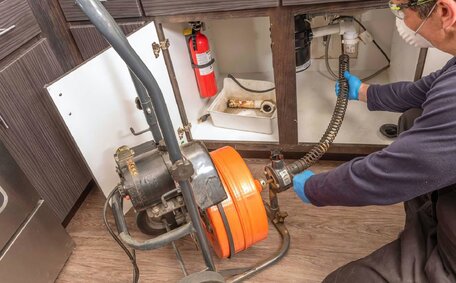Introduction to Retrofitting Hot Water Systems
Upgrading an ageing hot water system can provide many electric gas efficiency benefits. Retrofitting your hot water system for more energy and cost efficiency allows homeowners to save on energy bills while reducing their environmental impact.
Retrofitting refers to replacing an old system with a new hot water system that is advanced and efficient. Many older systems rely on outdated technologies that use energy inefficiently, contributing to higher energy bills. By contrast, when you replace your outdated system, modern water systems utilise design principles aimed at energy efficiency, maximising performance through improved insulation, heat retention, smart controls and inverter compressors.
Switching allows households to embrace heating cooling systems that not only efficiently warm your home but also enhance your heat management with innovations like heat pumps and solar panels. Government rebates can help in installing new upgrades more affordably and accessibly. With the ability to save on hot water heat expenses with lower running costs over time, retrofitting pays for itself with substantial energy saving benefits, reducing your energy footprint and enhancing your home’s sustainability.
When considering retrofitting, research key aspects such as available space, the age of your current plumbing, access to solar energy, the most favourable electricity tariff and incentives in your area. To optimise the upgrade, make sure it caters to the specific hot water use requirements of your home.
This article explores if retrofitting an older system is worthwhile for better economic and ecological performance. We’ll cover pros and cons of common system types, estimated costs and steps for installation. Read on to learn how to match a hot water system to your household.
Evaluating if Retrofitting is Worthwhile for your Old System
When deciding whether to retrofit an existing hot water system, consider its current condition and age, expected lifespan if left unchanged, and the improvements pump hot water systems offer.
Old water tank units tend to decline in efficiency compared to new water systems, as they succumb to heat loss and mineral buildup over time. After 10-15 years performance can decline rapidly. Compare repair costs to the long-term savings and environmental benefits of upgrading before failure happens.
Energy efficient hot water heat pump units now achieve more than 300% efficiency by utilising ambient warmth from the air. Meanwhile, new gas hot water systems featuring modern technology offer precision on-demand operation. Smart pump water heaters include thermostats offering automation to match usage, shut off when away, and prevent Legionnaires’ disease.
Current solar pv system incentives, battery storage and energy feed-in options can offset retrofitting costs for your water heating needs through onsite power generation and reduced grid energy use. Request Dulwich Hill Plumbing evaluate your system during routine maintenance. Our licenced experts can advise whether upgrading the hot water system your household uses suits your location, budget, and requirements.
Assessing if a Heat Pump is Suitable for your Home
When researching pump hot technology as an energy-efficient replacement for water heating systems, carefully evaluate your home’s setup. It’s important to consider key factors determining suitability, such as installation spaces with ample airflow, compatible plumbing and electrics, and sizing the unit appropriately for your daily household demands.
Modern heat pumps provide renewable hot water by extracting warmth from the surrounding air. Modern heat pumps provide renewable hot water by extracting warmth from the surrounding air. Consult a plumber to ensure your gas lines, water and interior power lines don’t need re-routing, avoiding added expense.
Check ground, roof and external wall spaces allow correct clearances.
For efficient pump hot water heating, choose a system with inverter technology sized to your typical usage. Check the kW power matches your household’s daily routine of showers, dish washing cycles, baths etc.
An undersized heat pump risks running cold within two three showers during high-demand periods, despite efficiently using ambient air heat. Overoutsizing wastes money on initial purchase and ongoing pumping electricity.
Also factor in how Sydney’s climate impacts the efficiency of your pump water heater over seasons. Unlike colder regions, our moderate temperatures allow heat pumps to operate all year round. While cooler months see coefficient of performance drop from above 4 to around 2.5, devices rated for Australia’s conditions still slash bills by over 50% yearly, as they use less electricity than conventional options.
Visit our Dulwich Hill Plumbing website for guidance on choosing hot water heat pump models with our selector tool. By measuring your existing system, hot water outlets, power supply and more it accurately matches your property to the perfect heat pump. Contact our friendly team if you need a licenced plumber to inspect conditions onsite.
Leveraging Government Incentives for Renewable Hot Water Upgrades
Upgrading to a renewable solar hot water system with a solar pv component can pay for itself faster using available government incentives. Australia offers financial subsidies to help residents make their homes more eco-friendly by installing approved hot water products.
Chief among these schemes aimed at reducing energy consumption is the federal Renewable Energy Target, which offers incentives for solar hot water systems through Small-scale Technology Certificates (STCs). Accredited installers calculate how many STCs are attributed to a system, which can be sold to energy retailers faced with national renewable targets. The proceeds then help discount your upgrade’s total price tag.
OPTISCAN® heat pumps attract 47-60 STCs in Sydney climate zones, equating to $470-$600 off. Combined with Victorian Energy Saver incentives and NSW government rebates up to $1000 off, this significantly reduces initial purchase costs. Homeowners can save up substantially with ongoing yearly savings from reduced energy bills, adding further value over time.
As a Clean Energy Council approved solar and heat pump specialist, Dulwich Hill Plumbing helps homeowners access available subsidies. We handle all paperwork, provide certified installation meeting safety standards and offer ongoing maintenance.
Visit our shop for more information on eligible models or call 1300 349 338 to speak with our energy-saving consultants. We’ll evaluate your hot water needs, recommend perfectly sized systems and explain current incentives to ensure you leverage the maximum discounts.
Ensuring Correct Sizing for Optimal Efficiency
Choosing the appropriately sized hot water unit is vital for optimal efficiency and cost savings. Incorrect sizing leads to excessive electricity usage from overpumping or inadequate supply when undersized.
Modern inverter heat pump water heaters provide renewable heat while using just one-third of the energy of conventional electric systems. However, the compressor and heating capacity must align with your typical daily demand for peak economic and ecological performance.
As licenced installers, Dulwich Hill Plumbing Pty Ltd’s consultants consider all water outlets, your household occupancy, usage routines, climate conditions and more when recommending correctly sized heat pump systems. We match homes to hot water units that offer the peace mind of reliable service without wasted energy.
We offer complementary sizing checks of existing systems. If repossessed units inherited from previous owners are improperly sized, we can advise new appropriate models that slash power bills.
Visit our online sizing calculator to estimate the right system for your household. Or call 1300 349 338 to book a consultation where our qualified plumbers determine the optimal heat pump for your home’s daily requirements.
Installation and Integration Considerations
When retrofitting an older hot water system, it’s crucial to ensure compatibility with existing plumbing and electrical configurations. Professional installation is advised to ensure even the cold water infrastructure is brought up to current safety codes.
Attempting to integrate a new system into outdated infrastructure could run out increased risks like leaks, electrical faults, or failure to properly distribute hot water as designed. The complexity involved means expert plumbers should handle removing old tanks, rerouting pipes or wiring, and fitting modern heat pumps or solar hot water.
As licenced installers, Dulwich Hill Plumbing specialises in seamless integration when modernising hot water supply. We verify adequate space for roof-mounted solar collectors or external heat pump clearance. Our qualified technicians establish whether water lines and power boards need upgrading to match newly selected systems.
With systems that can installed with precision and expertise, we guarantee reliability, efficiency, and long-term savings on bills for your household. Contact our friendly team on 1300 349 338 for retrofitting consultations catered to your home.
Controlling and Monitoring your New Heat Pump System
Modern heat pumps feature intelligent controls for improved functionality. Many models include programmable timers allowing households to match operation to peak usage hours. This automation regulates water heating in strategic hours day to maintain desired temperatures, effectively lowering your energy bill.
Higher-end systems can significantly help reduce environmental impact as they replace outdated models and integrate with smart home ecosystems, solar PV systems, and energy monitoring dashboards. This connectivity enables automation to minimise grid power consumption. Smart features can schedule heating when solar generation peaks whilemonitoring electricity prices and feed-in incentives.
Dulwich Hill Plumbing offers consultations to identify smart heat pump options suiting your household and budget. Our experts help futureproof hot water supply with the latest technology ensuring optimised efficiency. Contact us to learn about models with connectivity allowing convenient app and voice control, preventative self-diagnostics and detailed tracking of energy savings.
Comparing Hot Water System Options
When selecting types hot water systems in Sydney, key aspects to compare are upfront costs, energy sources, efficiency ratings, environmental impact, and reliability over time.
Gas Storage Systems
The gas hot water systems, such as continuous flow and storage tank models, heat water on demand or overnight on off-peak tariffs. While gas prices are rising, modern condensing gas water heater units offer efficiencies up to 95%.
Installation costs around $2000 with yearly bills from $300. Installation costs around $2000 with yearly bills from $300.
Electric Storage Tanks
Electric hot water heaters, including off-peak storage models from leading brands, provide hot water for $400 to $1500 upfront. Basic water heater models last 5-8 years while 5-star premium units offer 10-15 years of service.
Heating elements warm overnight for daytime use. Running costs for electric water heaters are significantly reduced by utilising offpeak electricity where your tariff can provide even greater savings.
Heat Pump Systems
Well suited to Sydney’s climate, with a range price about $2000 to $4000, they require outdoor ventilation.
Top models can also offer 10 year warranties with lifespans reaching 20 years through anode rod replacement. They cost $2000 to $4000 installed but cut yearly bills by 50% or more. Inverter heat pumps use air temperature to heat water with over 300% efficiency.
Solar Hot Water
Roof-mounted solar hot water systems harness the sun’s energy, delivering eco-friendly hot water and reducing carbon emissions. Backed by electricity or gas, they cost around $5000 to install but earn subsidies and operate freely. With some maintenance, systems produce zero-emissions hot water for 20+ years.
Contact our Dulwich Hill Plumbing experts to compare systems suiting your home and budget. Our qualified technicians offer advice on systems with a high star rating and tailor solutions to your household’s specific needs.
Understanding Long-term Savings with a Heat Pump
Installing an efficient heat pump hot water unit can provide substantial long-term savings compared to conventional electric and gas systems. Modern inverter models use heat pump technology, highly efficient compared to a traditional gas hot water system, utilising over 300% less electricity to heat water by extracting ambient warmth from outdoor air.
For a typical Sydney household replacing an outdated electric storage tank, switching to a storage hot water system can equate to over $300 in annual savings on heating costs. With recent rises in both electricity and gas hot water heater costs, this difference grows yearly. Over a 10-15 year lifespan, an appropriately sized heat pump provides over $4500 in cumulative bill reductions.
Combined with federal STC rebates and other incentives further offsetting the initial purchase price, opting for a service that can supply install a modern heat pump is a smart eco-friendly investment. Contact our friendly team at Dulwich Hill Plumbing on 1300 349 338 for a personalised consultation. Well assess your existing system and provide a detailed breakdown of long-term savings available heat pumps offer.






